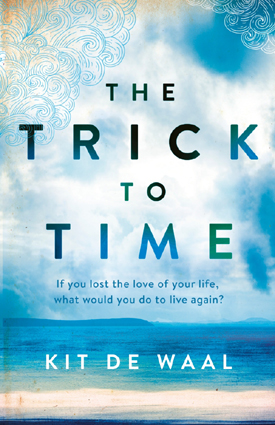I love it when a novel surprises me. I’m not specifically talking plot twists – although, this book does have a big one towards the end which I didn’t anticipate. It’s more that feeling when I’m reading a book and the writing is fine, but I’m not sure I see the point of the story. But then it gets to a section where it emotionally grips me and breaks my heart and pieces it back together bit by bit. The best example of this I always go back to is Colm Tóibín’s “Brooklyn” which made me flip and fall in love with it halfway through. But now I can say the same about Kit De Waal “The Trick to Time”. This novel slides effortlessly between the early and later life of Mona, a girl from Ireland who eventually moves to England and spends many years making elegant handcrafted dolls as well as emotionally assisting bereaved women in their grieving process. It’s a deceptively simple story that makes big statements about loss, relationships and the power imagination can play in rescuing us from the ravages of time.
One way this novel really pulled on my heart strings was by portraying some characters who are outwardly “difficult” but their prickliness is really a defensive guise shielding hidden psychological pain. A woman named Sarah visits Mona at one point and, though she is quite rude and dismissive, Mona persists in helping her because both women have experienced a similar sense of loss and Mona can sense how much she’s in pain. This astute, empathetic manner is really touching, but it’s also heartening to read about a character like Mona who is so essentially good that she’d selflessly give her time and attention to someone else rather than become embittered by her own anger and despair. This is something I also found so striking about another novel I read recently called “The Ninth Hour”.
Mona and Karl visit Packington House, a 17th century mansion in Warwickshire
This novel also meaningfully engages with a question I’ve grappled with a lot in my life. It’s difficult not to let ourselves become preoccupied with thoughts about what might have been if we’d made different life choices or if chance had made us take a different path in life. Usually I’ve felt that getting lost in such musings is counterproductive as its taking you out of your immediate existence or the moment you’re living in. But this novel posits a different slant on this issue. Early in Mona’s life her father explains to her that there is a trick to time and throughout the book there are multiple examples of how people can indulge in imaginatively building alternate timelines for themselves – not necessarily as ways of escaping real life, but overcoming grief which feels otherwise insurmountable. So when Mona’s mother is very ill she engages her daughter in picturing how Mona’s life might play our or when a neighbour named Karl takes Mona to an antique fair they engage in playful musings about a luxurious lifestyle where the furniture around them fills an imagined stately home. It feels like this way of allowing ourselves to be manipulated by fantasy and the imagination can be a way of building a stronger sense of self as it allows us to simultaneously inhabit all the multiplicities of life.
I also really appreciated how this novel frankly deals with the subject of miscarriage in such a complex and moving way. It’s always felt to me like a somewhat taboo subject that’s not often talked about or perhaps it’s something I’ve never been that aware of as a man who has never been with a pregnant partner. But several years ago I was startled to find that some women close to me had experienced miscarriages which I hadn’t previously known about. It’s entirely understandable that something so sensitive isn’t brought up except in certain contexts and, of course, this is why many pregnant women don’t tell many people about their pregnancy until a certain stage, but it feels important that there’s more dialogue about something which can have long-term emotional consequences. “The Trick to Time” handles this beautifully and in such an effective way. I was entirely engrossed in the novel and moved by its very touching ending.









